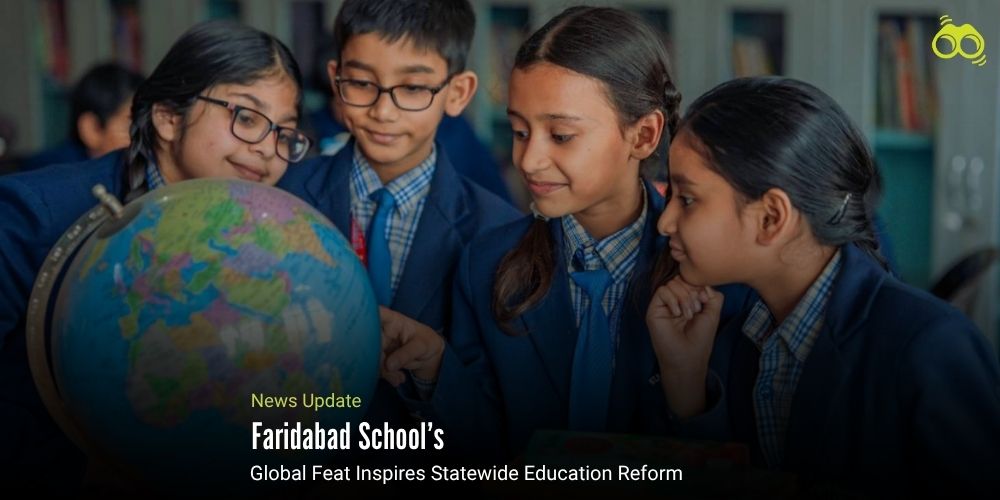Global Spotlight on Haryana School for Championing Girls’ Wellness and Inclusive Education
Indian Government School Earns Global Recognition in T4 Education Awards
In a moment that brings renewed recognition to education in India, Chandigarh’s Government Girls Senior Secondary School, NIT-5, Faridabad, has earned a place among the top 10 finalists in the World’s Best School Prizes, under the Supporting Healthy Lives category. Organised by T4 Education in the UK, a leading global platform in articles about education, these prizes aim to honour institutions creating positive societal impact through innovative practices.
Faridabad’s inclusion is particularly significant given the school’s status as a government college, showcasing that public education in India can reach benchmarks set by some of the top colleges in the world. The school’s integrative approach, blending nutrition, physical wellness, and mental health into its teaching model, positions it alongside the world’s most effective educational institutions, promoting inclusive growth.
This announcement also strengthens Haryana’s educational reputation. Recognised by Mahipal Dhanda, the state’s Education Minister, the accolade supports broader state initiatives such as smart classrooms, STEM laboratories, and teacher training reforms, with implications for raising the standards of the top 10 schools in Faridabad and beyond. Shortlisted schools from Haryana, Maharashtra, Karnataka, and Uttar Pradesh are also being considered for T4 Education’s Best School to Work programme, a global initiative supporting teacher wellbeing and institutional excellence. These accolades are often viewed with the same seriousness as those bestowed upon world-ranking universities, reinforcing that fundamental change begins at the school level.
The prize categories, Community Collaboration, Environmental Action, Innovation, Overcoming Adversity, and Supporting Healthy Lives, highlight the diverse strengths of schools across continents. Winners will be selected by a judging academy and honoured at the World Schools Summit in Abu Dhabi this November, where they’ll present their work before policymakers, researchers, and leaders from top universities in the world and the best business schools in the world.
As India continues to strengthen its presence in global education, this achievement encourages aspirations not just for top 10 colleges for BBA in India or top engineering colleges in India, but also for medical colleges, engineering schools, and business schools seeking to join the ranks of the best universities in the world. This recognition of a government school in Faridabad is a powerful statement that innovation, excellence, and equity can thrive not only in elite spaces but also in the classrooms of dedicated educators across India.
Editor’s Note
The commendation of a government school in Faridabad by T4 Education transcends mere acclamation; it serves as a salient reminder that educational excellence is not exclusively confined to the well-resourced environments of elite institutions. While global assessments frequently focus on leading universities and top-tier colleges, the true transformative progress may be emerging in contexts that seldom garner international media attention. The fact that a public school can rival educational pioneers globally highlights India's increasing determination to reform its schooling system. The successful implementation of initiatives such as smart classrooms, STEM labs, and health-centric learning, rather than merely existing as theoretical policies, is validated by this recognition. Faridabad's achievement is not an anomaly; it indicates that India's government colleges and public institutions are capable of, and ought to be, participants in the worldwide discourse on education. The concept of "global education" is frequently linked to promotional content from prestigious business schools or celebrated rankings of leading engineering institutions in India. However, narratives such as this illustrate the true source of transformation, not merely empirical data, but the lived experiences of students, especially the most susceptible.
As per Skoobuzz, Faridabad's recognition stands as powerful evidence that true educational transformation begins at the grassroots and that even the most modest classrooms can shape a global future.














0 Comments (Please Login To Continue)